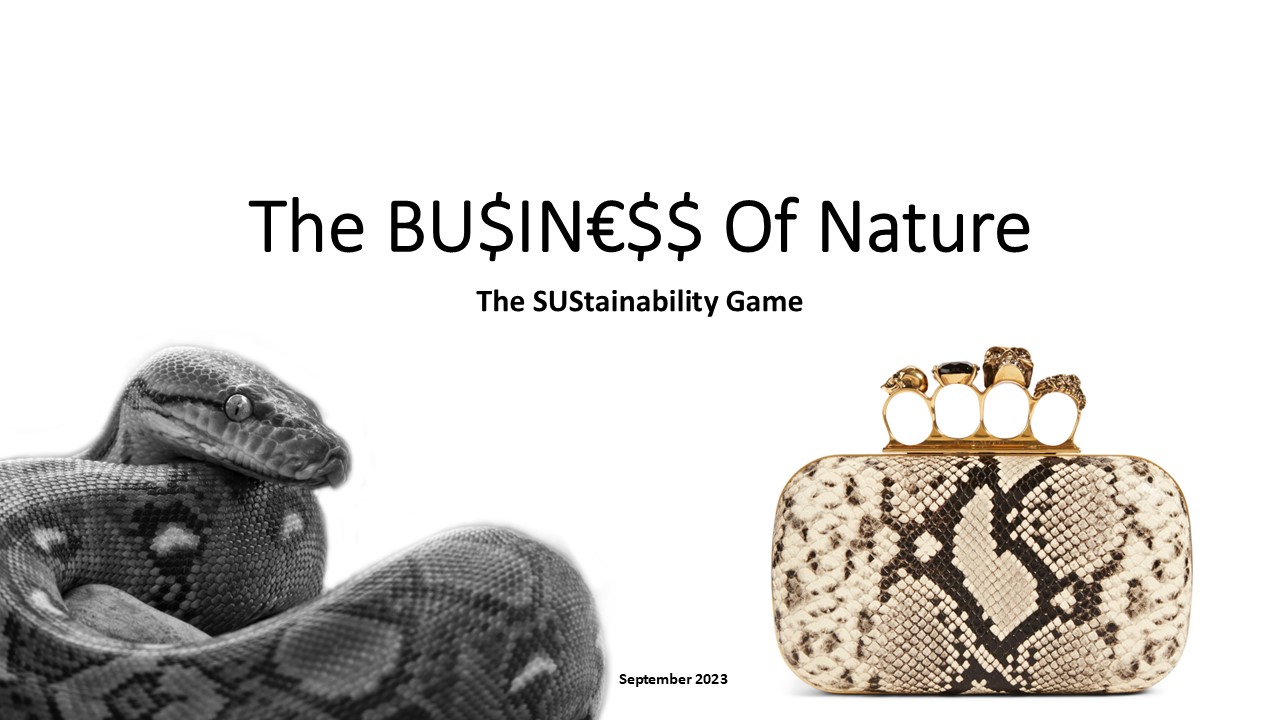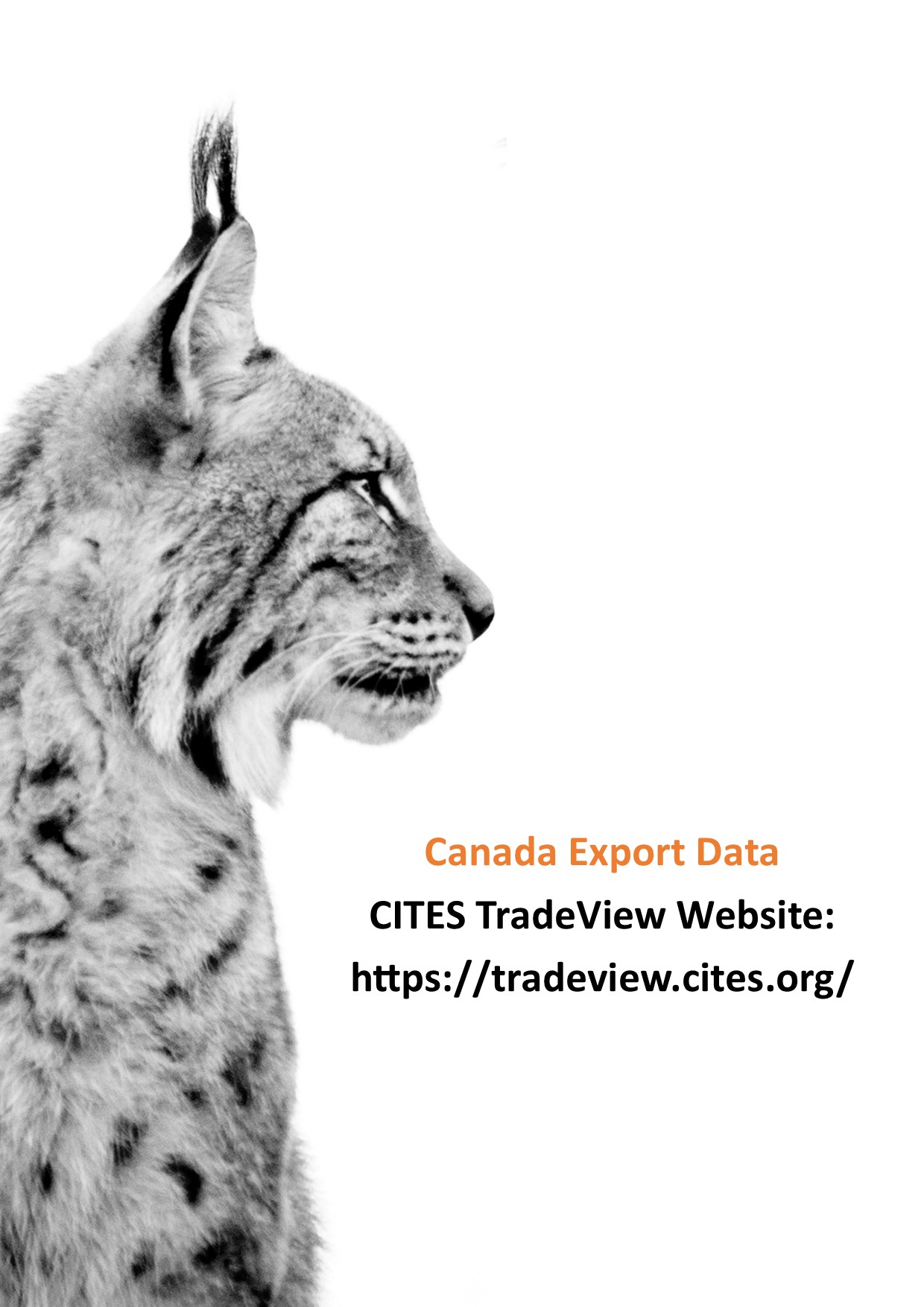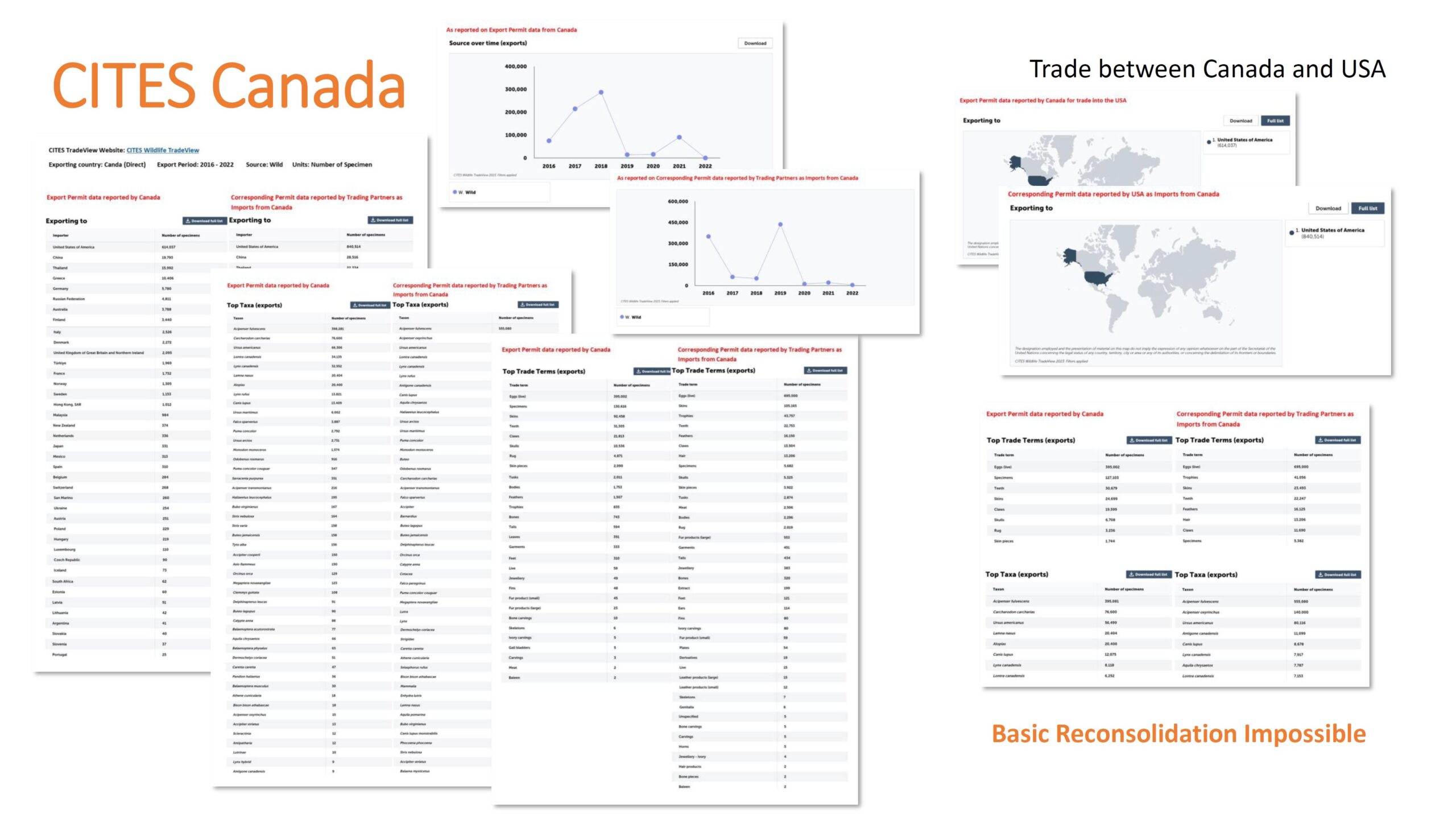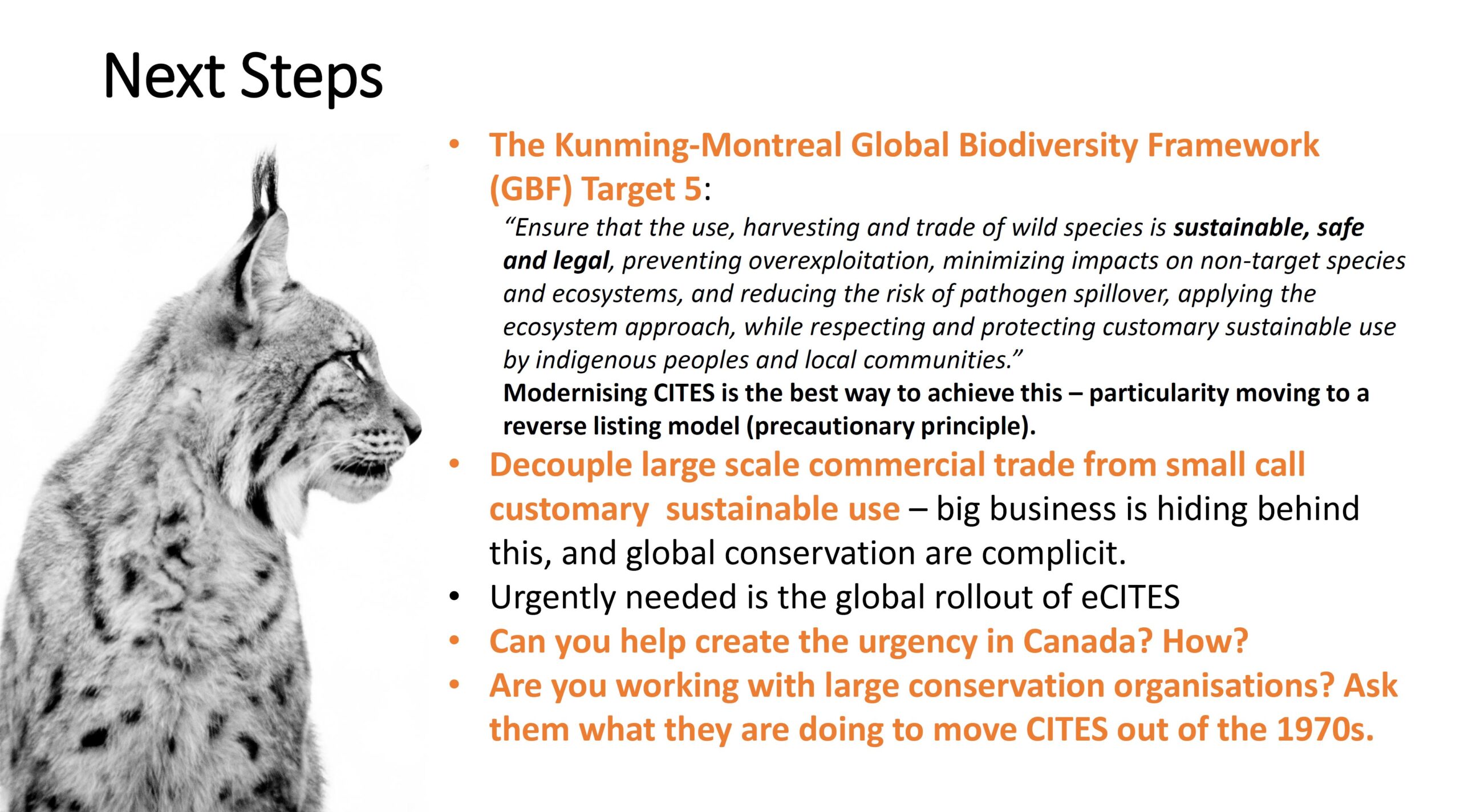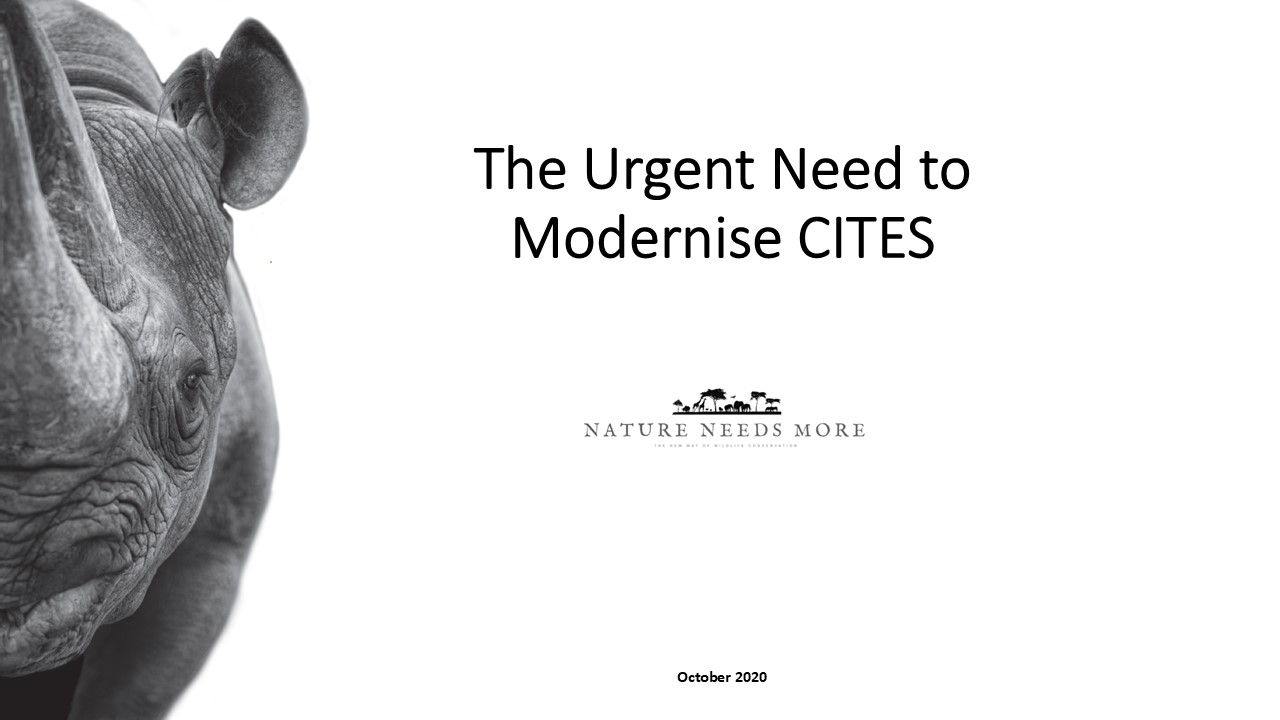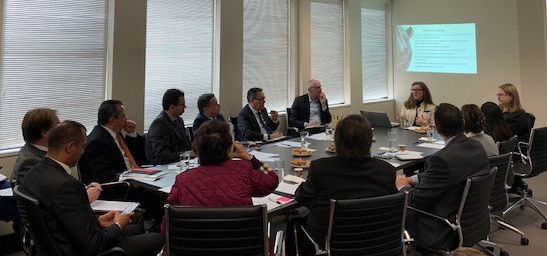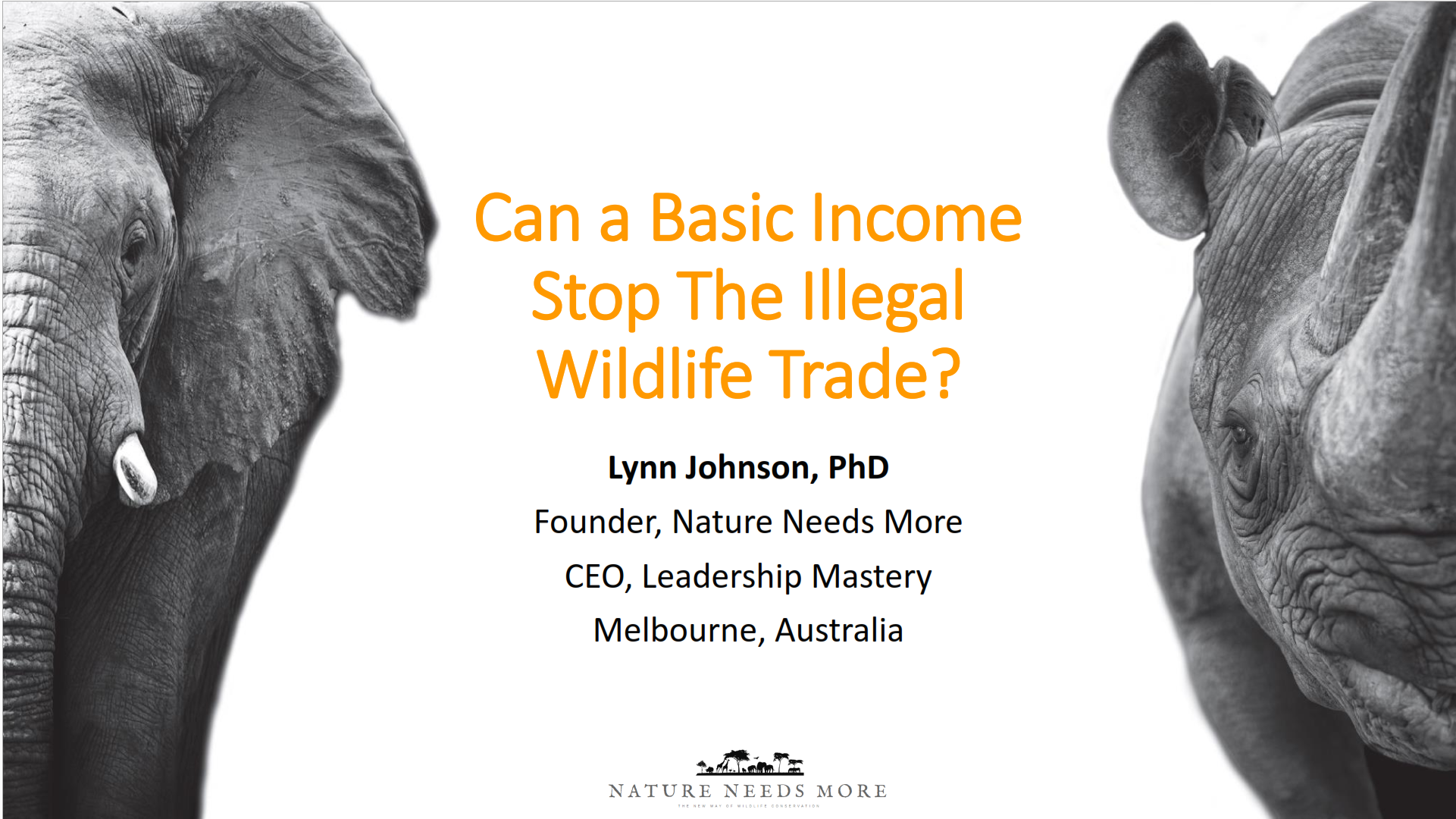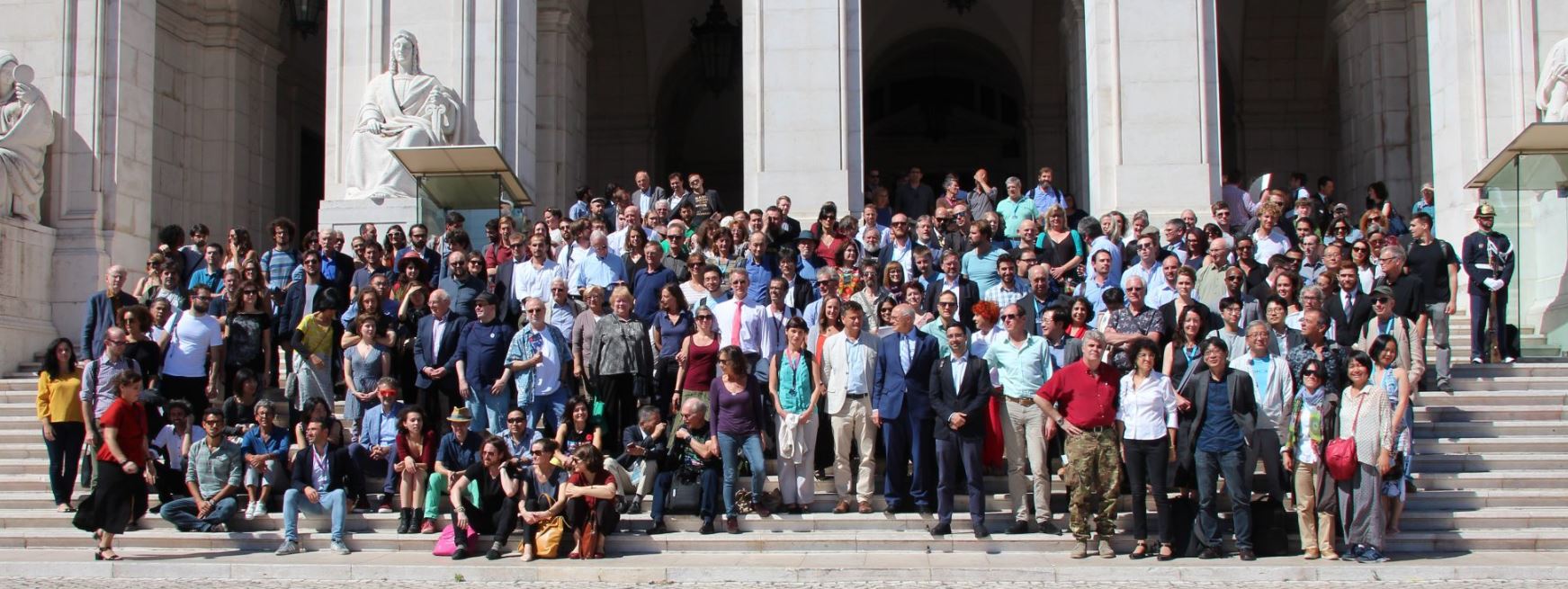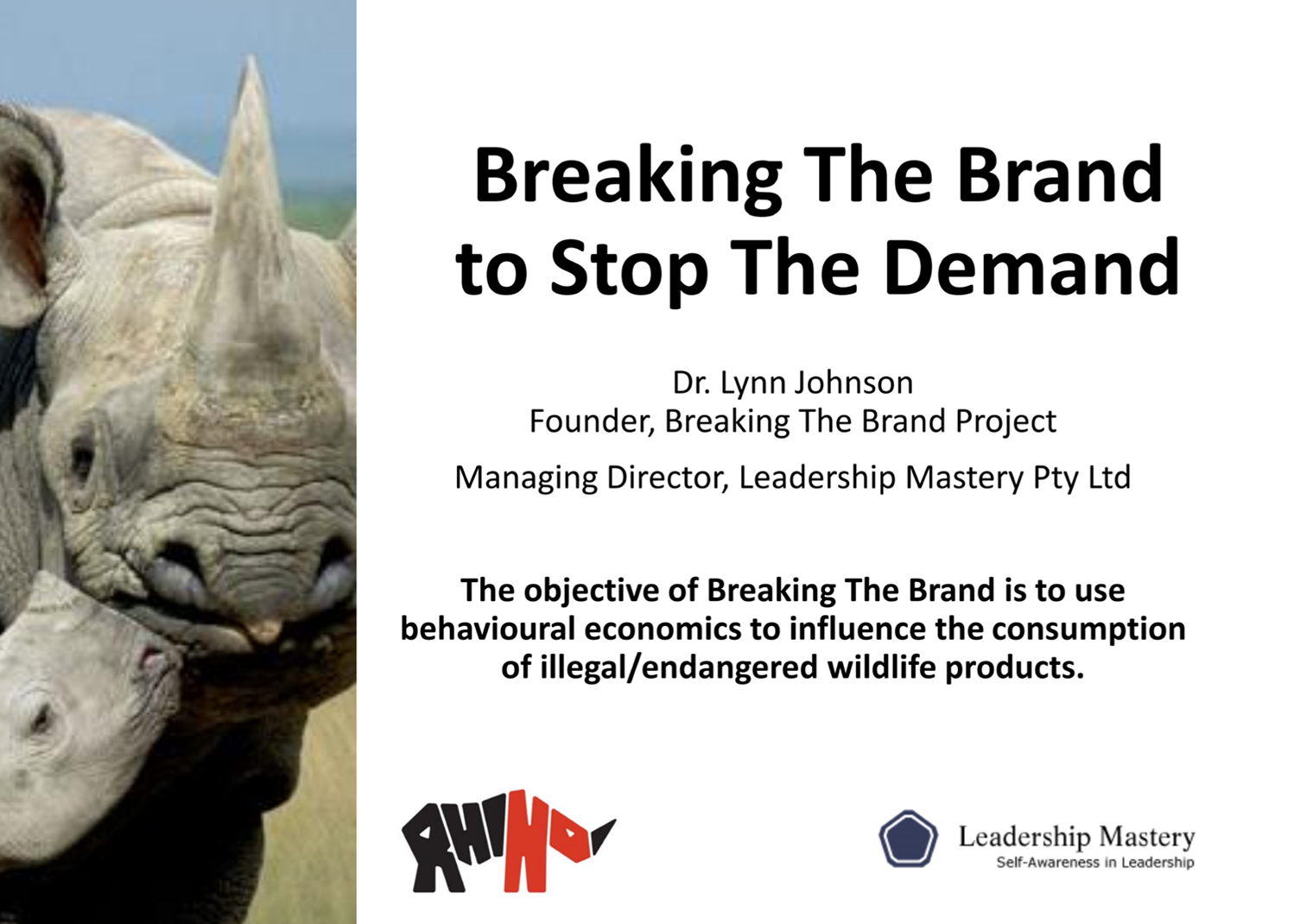From the launch of the Breaking The Brand project in March 2013, to the evolution into Nature Needs More Ltd, we have chosen to openly share all our research, models and ideas. In the race to save the natural world transparency is critical in everything from ensuring trade supply chains are transparent to sharing research findings and innovative ideas.
2023 – The BU$IN€$$ of Nature Presentation
In 2023, Nature Needs More published The BU$IN€$$ of Nature Report As a result of this research and report, Nature Needs More was invited to present our findings, solutions and recommendations to philanthropists in the USA.
Today there is little awareness in the philanthropic sector about the problems associated with the LEGAL trade in wild species and how the legal trade contributes to the extinction crisis. Better regulating the legal trade will not only curb the illegal trade, it can also achieve sustainability if updated regulation is fully based on the Precautionary Principle.
2023 – Modernising CITES Canada
When Nature Needs More has been asked to present our research on the CITES trade, sometimes the request is in regard to specific species, for example the trade in marine species. Other requests are specific to the type of trade, such as the exotic pet trade or country specific trade, such as a presentation on the Canadian trade in CITES species requested by CALSG – Canadian Animal Law Study Group.
If your organisation would like to know more about the issues associated with the legal trade in wild species, and how they are contributing to trafficking of endangered and exotic species, please don’t hesitate to contact Nature Needs More.
2020 – Modernising CITES Presentation
Since launching the Nature Needs More modernising CITES project in 2018, we have been invited to present of our work in a number of forums. These presentations have brought the problems associated with lack of proof of sustainability into the spotlight. They have provided the evidence of how easy it is to launder illegal product into the legal supply chains and marketplace.
One result has been a greater focus on the problems of the legal trade in wild species. A second result has been the increasing number of countries modernising their CITES 1970s paper permit system to digital permits.
2019 Deloitte Impact Day (Nov 2019)
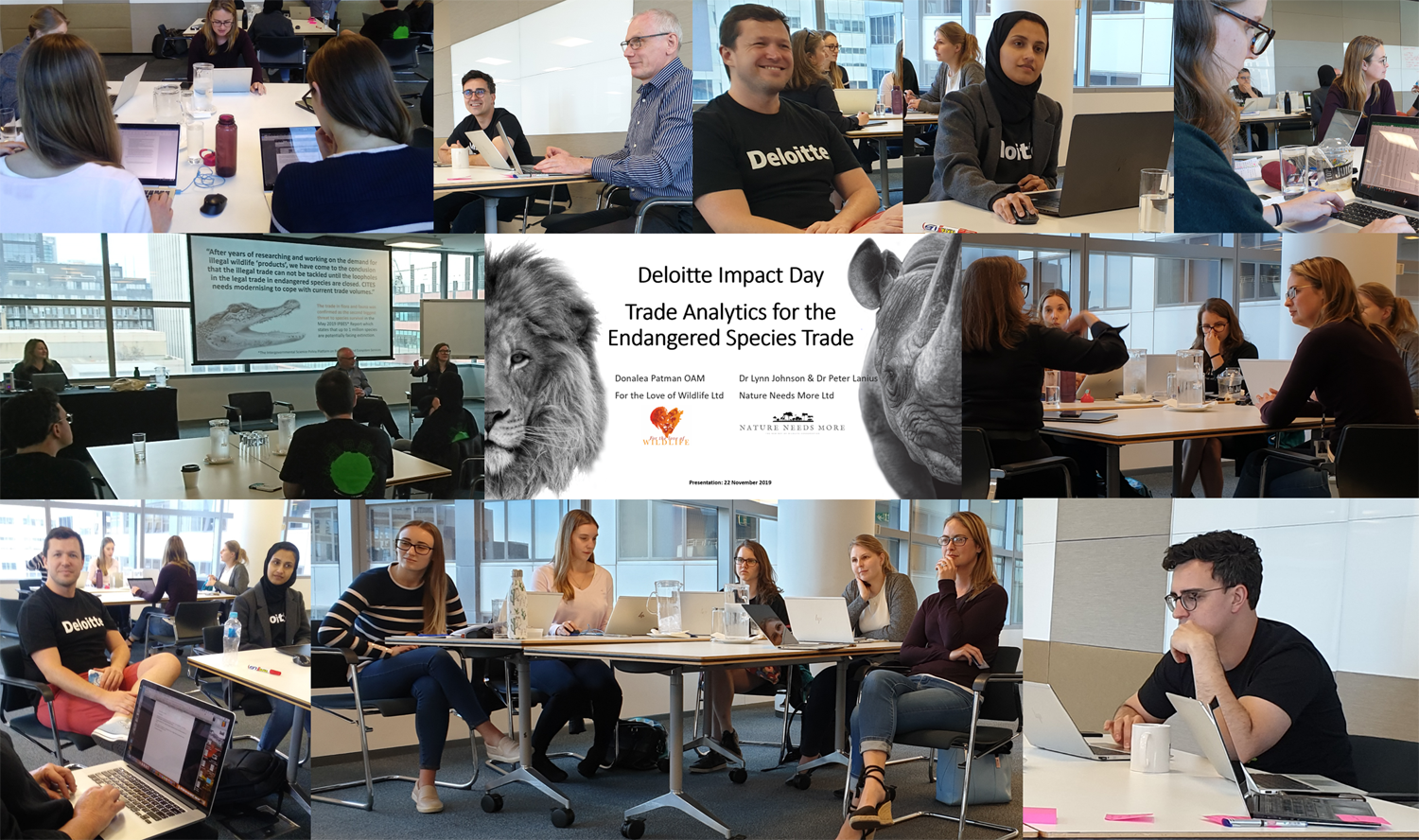
We were delighted to work with Deloitte team members from Analytics, Access Economics, Risk and IT on assessing the CITES trade data system and other options for gathering information on the legal trade data.
Reinventing Magnificence:
Status from Contribution (Nov 2018)
Nature Needs More was delighted to be able to collaborate in a Symposium and Exhibition interrogating the impacts of unconscious and unrestricted luxury consumption, past, present and future. The event was curated by Dr Catherine Kovesi of the University of Melbourne and hosted by Palazzo Contarini Polignac, located on the Grand Canal in Venice.

For the symposium, Nature Needs More spoke about our research on regarding the final step in a demand reduction strategy, namely redirecting desire; specifically how to gain status from contribution to the natural world not from its consumption.
The new form of magnificence cannot necessary be based on empathy or compassion. Historically magnificence was based on status and implied obligation, and the link was broadly accepted. Anything based solely on compassion with nature cannot be broadly accepted as yet, we are still in the process of increasing our distance from nature through urbanization. For now we must also accept that status and hence luxury consumption for status gain are tribal – meaning is conveyed primarily to the ‘in-group’. Creating a new form of status differentiation means creating a new hierarchy of contribution that is meaningful to the tribe and seen as a public good by the wider population.
Why Venice? The rhino and Venice have a curiously entwined history and present day predicament. The rhino is represented in one of the city’s most ancient mosaics, and also an eighteenth-century touring rhino is famously depicted in the city’s art. Now the rhino and Venice are both under threat from their status as luxuries. Rhino’s as a result of the current, destructive pseudo-luxury market that evolves from the desire for social differentiation and Venice, as a growing consumer class desire luxury travel experiences.
17th World Congress On Universal Basic Income
(Sept 2017)
Nature Needs More was delighted be able to present our work on a Basic Income Linked to conservation at the 17th world Congress On Universal Basic Income. The event, hosted by the Portuguese Government took place at the São Bento Palace in Lisbon, the seat of the Assembly of the Portuguese Republic, the parliament of Portugal.
Breaking The Brand evolved and was incorporated in to Nature Nature Needs More as one of the pillars of the NNM strategy.

